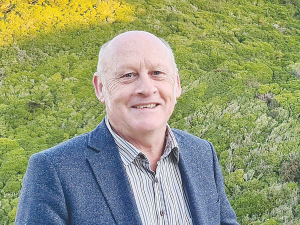Rural health advocates say the Government's decision to establish a new medical school at the University of Waikato augurs well for the rural sector.
Rural Health Network (Hauora Taiwhenua) chief executive Grant Davidson said that they were "excited by the long awaited announcement" of a third medical school, particularly given the emphasis on rurality in the announcement.
"This will complement the excellent training programmes already in operation at Auckland and Otago, while providing a graduate-entry option with strong community immersion. It will give hope to rural general practice that the continuance of a targeted workforce for rural communities is important to this government."
Davidson said that research has shown that rural-origin students trained in rural areas by rural health professionals were six times more likely to work in rural areas post-graduation.
"While graduates from the Waikato programme will be able to follow any medical specialty, we hope that by having more exposure during the training to general practice, a higher percentage of graduates will see the benefits of working in the community."
Davidson added that Hauora Taiwhenua was encouraged that "our collective efforts to empower our rural communities by ensuring they have access to high-quality healthcare services, delivered by professionals who understand and are committed to rural values and needs, has been heard".
Health Minister Simeon Brown said that with $82.85 million in government funding and over $150 million from the university, supported by philanthropic investment, the new school would have a strong focus on primary care and rural health.
The school will offer a graduate-entry programme, providing a flexible new pathway into medicine that helps attract a broader range of students and build a stronger, more diverse workforce.
"It's an innovative model that supports our focus on strengthening primary care, making it easier for people to see their doctor - helping Kiwis stay well and out of hospital," said Brown.
"It also builds on the university's recent additions of nursing, pharmacy, and midwifery programmes, demonstrating a strong and growing commitment to developing New Zealand's health workforce."
Brown says the school will build on the Government's investment in the health system and workforce by adding another 120 doctor training places per year starting 2028, on top of 100 additional medical training places being added over the term of this Government across the universities of Auckland and Otago.
Universities Minister Dr Shane Reti says the decision is a significant step forward for both the University of Waikato and tertiary education in the wider region.
"It strengthens the university's position as a leader in education, training, and research, and creates new academic and economic opportunities for Hamilton, the Waikato, and rural communities.
"By expanding access to medical training, we're creating new opportunities for students from across the region and beyond, while also helping to future-proof the local workforce."



















